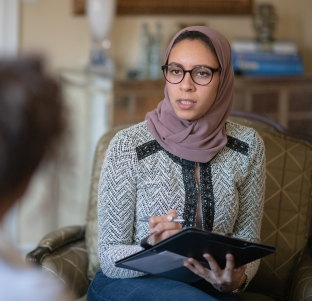Social Services
Torture occurs within a cultural and social context. It breaks the connections between individuals and their social environment. It separates the bonds of communities. Social work interventions, therefore, are directed at individuals, their families and immediate environments, community, social, and functional groups, and policies and systems. These are accomplished through direct service, resource development, community interventions, education and training, research, and public policy work.

Webinar
Intensity of their suffering: Long-term physical and psychological symptoms in detained Syrian men, subjected to CRSV, torture and displacement
Webinar
Integrative Social Work with Asylum Seekers and Traumatized Migrants
resource
Ambiguous loss of home: Syrian refugees and the process of losing and remaking home
Webinar
Promoting safety with our clients – e-consultation
Can’t find what you’re looking for? Let us help you.
resource
Afghan Arrivals

Webinar
Promoting Safety with our Clients
resource
Physical forensic signs of sexual torture in children. A guideline for non specialized medical examiners
resource
A Congolese-US participatory action research partnership to rebuild the lives of rape survivors and their families in eastern Democratic Republic of Congo